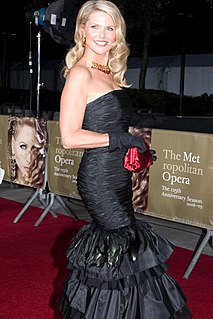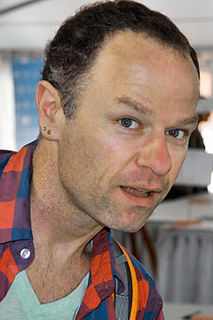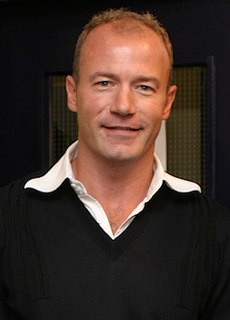A Quote by Annette Bening
You read something and you know it's not there yet. There's a little section here that... this part's good but that is a little not, it doesn't quite work. That doesn't quite work. That's easy. To say, "OK, now, this is what I think will fix it." That's harder. And most people can tell you what's wrong with something. Very few people can say what they would do to fix it.
Related Quotes
I was so unsuccessful for so long. I was used to the word no. I was used to you're not good enough or not quite there or you need to fix this about you. So I am honestly walking in faith every single day that I am going to be able to handle whatever God has for me. I am not used to being in a place where people appreciate my work and understand my work and want to be a part of my work and getting something out of my work because for so long it was so misunderstood. The success part for me is the hardest part and everyday I'm still battling.
The money in the stabilization fund, $130 billion which I call an insurance bailout, is put in to try to cure the adverse selection that Obamacare created by making insurance too expensive. Healthy people didn't buy it. They tried to fix this by forcing young people to buy it through an individual mandate. Even that didn't work. So the way the Republicans fix it is they don't actually fix it. They subsidize it. So we have to fix what went wrong with Obamacare, not just recapitulate something that's broken.
I am very, very aware at all times. I'm watching myself, I'm listening to myself, I'm judging myself, critiquing myself all the time, and I will know when I do something and I will immediately say, "Can I do another one, because I didn't quite get that thing," or that I wanted to do something there and it didn't quite work.
Fiction allows us to see the world from the point of view of someone else and there has been quite a lot of neurological research that shows reading novels is actually good for you. It embeds you in society and makes you think about other people. People are certainly better at all sorts of things if they can hold a novel in their heads. It is quite a skill, but if you can't do it then you're missing out on something in life. I think you can tell, when you meet someone, whether they read novels or not. There is some little hollowness if they don't.
Because everybody lies. It's part of living in society. Don't get me wrong-I think it's necessary. The last thing anyone wants is to live in a society where total honesty prevails. Can you imagine the conversations? You're short and fat, one person might say, and the other might answer, I know. But you smell bad. It just wouldn't work. So people lie by omission all the time. People will tell you most of the story...and I've learned that the part they neglect to tell you is often the most important part. People hide the truth because they're afraid." -Jo
Whether or not belive in Fate comes down to one thing: who you blame when something goes wrong. Do you think it's your fault - that if you'd tried better, worked harder, it wouldn't have happened? Or do you just chalk it up to circumstance? I know poeple who'll hear about the people who died, and will say that it was God's will. I know people who'll say it was bad luck. And then there's my personal favorite: They were just in the wrong place at hte wrong time. Then again, you could say the same thing about me, couldn't you?
If the majority of people said I did something wrong, then I must be wrong, and I will think 'I didn't even mean it like that, why are you treating me like this?' But if a lot of people say that I'm wrong and it's not good, then it must be not good. I will say, 'Okay' and then tell myself that this cannot happen again. I have to grasp it and change it for the better.
You'd be amazed how much fun you can have if you get out of your own head. The problem is that now people are only interested in themselves. What we have is a non-voting generation. That's what they should call you guys, the non-voting generation. You think you can't fix anything until you fix yourselves. Well, let me be the first to tell you, you will never fix yourselves. p.32
There is another side to me which people don't often see, but it's very hard for me to show that. When I do interviews, I'm talking to people I don't know and when you speak to a stranger you don't open up, do you? In my position, people are always looking for something to say about me. And anything I do say, given half-a-chance they'll turn it round into something spectacular so I've got to be very careful. That's why it's only my friends and family who know the real me. Now my wife, Lainya, she could tell you a few stories.
If a man were poor or hungry, [some] would say, let us pray for him. I would suggest a little different regimen for a person in this condition: rather take him a bag of flour and a little beef or pork, and a little sugar and butter. A few such comforts will do him more good than your prayers. And I would be ashamed to ask the Lord to do something that I would not do myself. Then go to work and help the poor yourselves first, and do all you can for them, and then call upon God to do the balance.




































